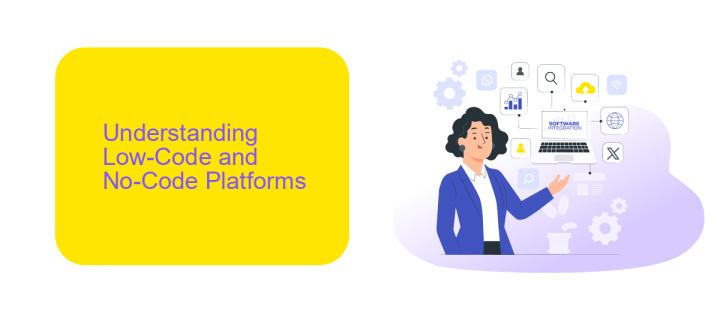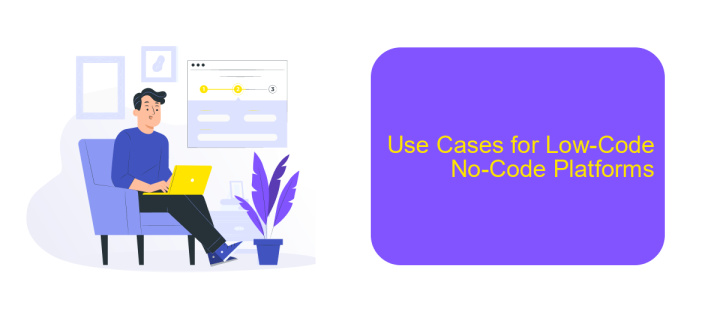What is Low-Code No-Code Platform
A Low-Code No-Code platform is a revolutionary approach to software development that allows users to create applications with minimal or no coding knowledge. By utilizing intuitive visual interfaces and pre-built modules, these platforms empower both professional developers and non-technical users to rapidly design, build, and deploy applications, significantly accelerating the development process and reducing costs.
Introduction
Low-Code No-Code platforms are revolutionizing the way businesses develop applications by making it accessible to those without extensive coding knowledge. These platforms provide a visual development environment, allowing users to drag and drop components to create applications quickly and efficiently.
- Ease of use: No need for advanced programming skills.
- Speed: Rapid application development and deployment.
- Cost-effective: Reduces the need for a large development team.
- Flexibility: Easily adaptable to changing business needs.
One of the key advantages of Low-Code No-Code platforms is their ability to integrate with various services seamlessly. For instance, ApiX-Drive offers a powerful solution for setting up integrations without the need for coding. This service allows businesses to connect different applications and automate workflows, enhancing productivity and operational efficiency. As a result, companies can focus more on innovation and less on the complexities of software development.
Understanding Low-Code and No-Code Platforms

Low-code and no-code platforms are revolutionizing the way businesses develop applications by significantly reducing the need for extensive coding knowledge. These platforms provide visual development tools, allowing users to design and deploy applications through drag-and-drop interfaces and pre-built templates. This democratizes the development process, enabling non-technical users to create functional applications quickly and efficiently, thereby accelerating digital transformation within organizations.
One of the standout features of low-code and no-code platforms is their ability to integrate seamlessly with various services and APIs. Tools like ApiX-Drive facilitate these integrations by offering a user-friendly interface to connect different applications without requiring complex coding. This capability not only streamlines workflows but also enhances the functionality of the developed applications, making it easier for businesses to automate processes and improve operational efficiency.
Advantages of Low-Code No-Code Platforms

Low-Code No-Code platforms offer numerous advantages, making them a valuable tool for businesses and developers alike. These platforms significantly reduce the time and effort required to develop applications, allowing even those with minimal technical expertise to create functional and robust solutions.
- Speed: Development cycles are drastically shortened, enabling quicker deployment of applications.
- Cost-Effective: Reduced need for extensive coding expertise lowers development costs.
- Accessibility: User-friendly interfaces make it easy for non-developers to participate in the development process.
- Flexibility: Easily customizable to meet specific business needs without extensive coding.
- Integration: Tools like ApiX-Drive simplify the integration of various services and applications, enhancing functionality.
Overall, Low-Code No-Code platforms democratize the development process, empowering a broader range of individuals to contribute to application creation. This not only fosters innovation but also ensures that businesses can quickly adapt to changing market demands and technological advancements.
Use Cases for Low-Code No-Code Platforms

Low-code no-code platforms are revolutionizing the way businesses approach software development. These platforms empower users with little to no programming experience to create applications and automate workflows, significantly reducing development time and costs.
One of the primary use cases for low-code no-code platforms is rapid prototyping. Businesses can quickly create and iterate on application prototypes without the need for extensive coding expertise. This accelerates the development process and allows for faster feedback and adjustments.
- Automating repetitive tasks and workflows
- Building internal tools and dashboards
- Creating customer-facing applications
- Integrating various services and APIs
For instance, integrating different services and APIs can be simplified using platforms like ApiX-Drive. This service allows users to connect various applications and automate data transfer without writing a single line of code. By leveraging such tools, businesses can streamline their operations and improve efficiency.
- Automate the work of an online store or landing
- Empower through integration
- Don't spend money on programmers and integrators
- Save time by automating routine tasks
Choosing the Right Low-Code No-Code Platform
Choosing the right low-code no-code platform requires careful consideration of several factors. First, assess your team's technical expertise and the complexity of the applications you plan to build. Platforms vary in their ease of use and the level of customization they offer. Ensure the platform you choose aligns with your team's skill set and project requirements. Additionally, evaluate the platform's scalability and flexibility to accommodate your future needs as your business grows.
Another crucial aspect is integration capabilities. Your chosen platform should seamlessly integrate with your existing systems and third-party services. For instance, ApiX-Drive is a valuable tool that facilitates easy integration between various applications and services, streamlining your workflow. Check for pre-built connectors and APIs that can simplify the integration process. Lastly, consider the platform's support and community resources. A strong support system and an active user community can significantly enhance your experience and help you overcome any challenges you might encounter.
FAQ
What is a Low-Code No-Code Platform?
Who can benefit from using Low-Code No-Code Platforms?
What types of applications can be built using Low-Code No-Code Platforms?
How do Low-Code No-Code Platforms handle integrations with other systems?
Are Low-Code No-Code Platforms secure?
Time is the most valuable resource for business today. Almost half of it is wasted on routine tasks. Your employees are constantly forced to perform monotonous tasks that are difficult to classify as important and specialized. You can leave everything as it is by hiring additional employees, or you can automate most of the business processes using the ApiX-Drive online connector to get rid of unnecessary time and money expenses once and for all. The choice is yours!


